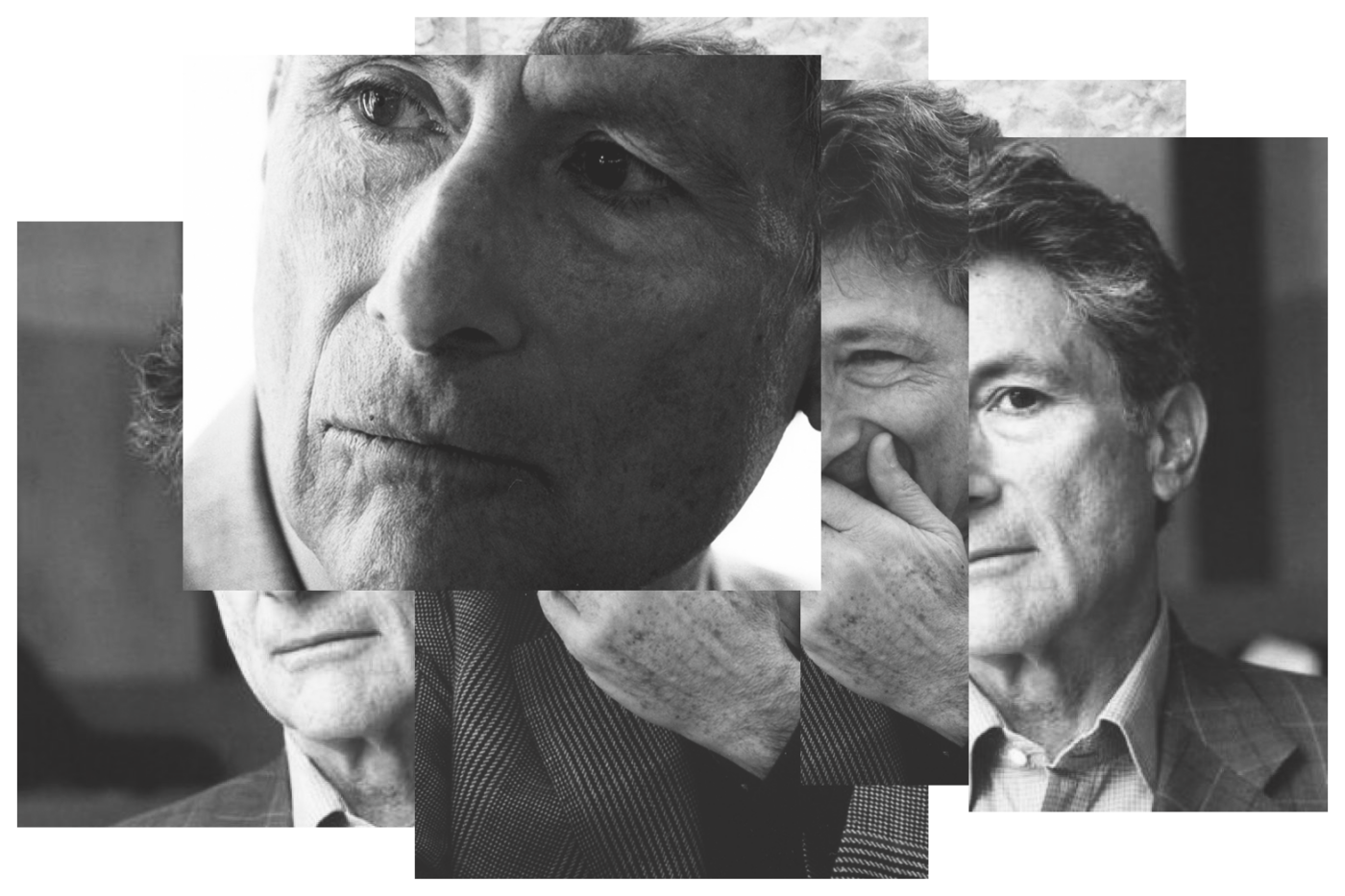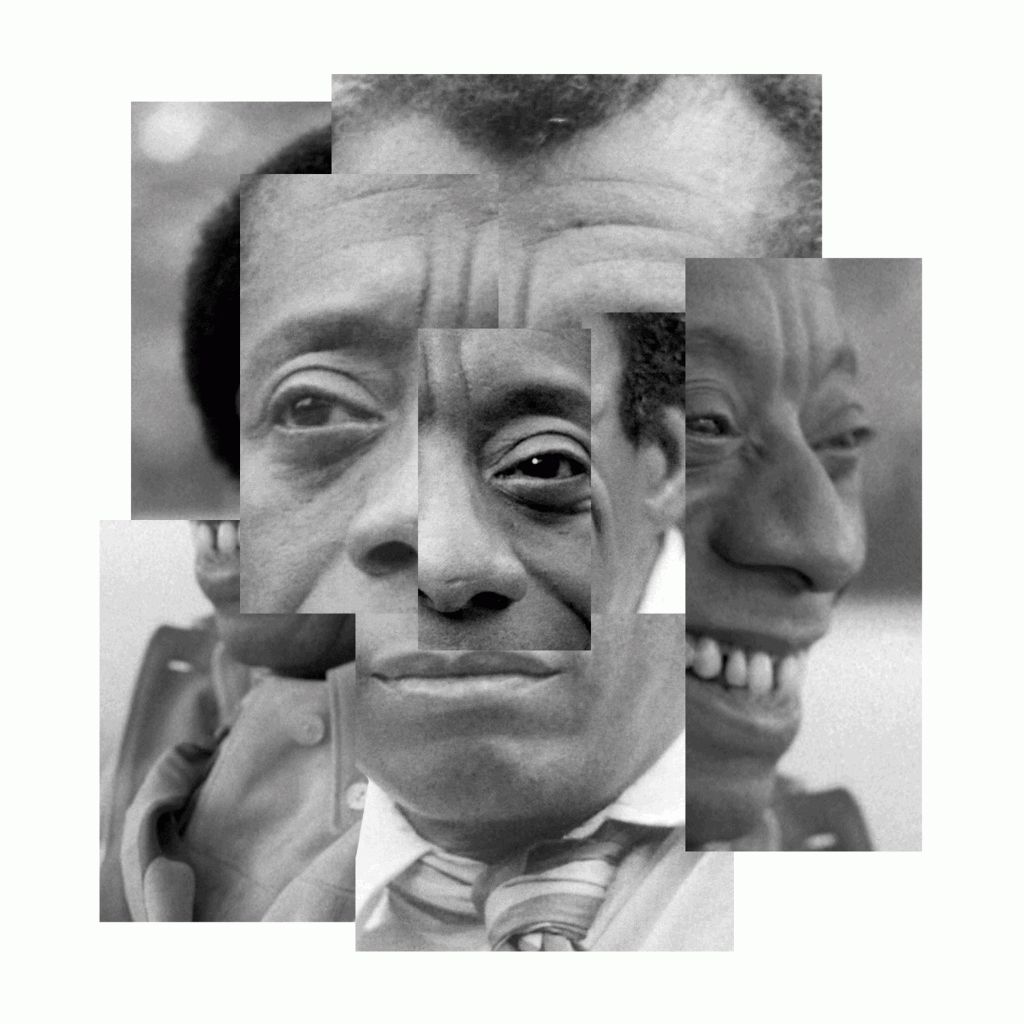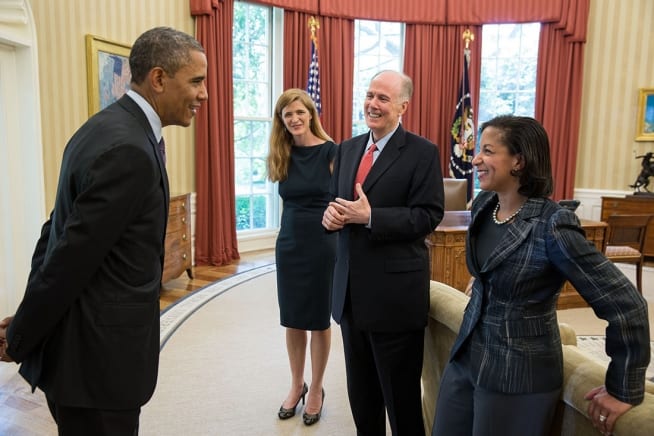

Joseph Massad started raising eyebrows on the Columbia campus around 2002. That spring, students circulated a petition calling for the political scientist’s dismissal; one, writing in The Columbia Daily Spectator, cited a lecture from Massad’s elective, “Palestinian and Israeli Politics and Society,” as evidence of a growing climate of anti-Semitism, likening the talk to a swastika tagged on the wall of a campus bathroom. At a pro-Palestine rally that April, Massad, who is Palestinian, compared the Israeli occupation to South African apartheid. This did not go unnoticed by Campus Watch, a website established by the conservative think tank Middle East Forum that invites college students to inform on anti-Zionist professors. After the rally, Campus Watch and the right-wing New York Sun launched an extended campaign against Massad, printing regular swipes at him and his department. By December 2004, four Jewish classmates had formed the dubiously named Columbians for Academic Freedom in an attempt to intimidate the university administration into firing Massad.
One of those students was a sophomore named Bari Weiss, future author of How to Fight Anti-Semitism and ex-columnist at The New York Times, where she would resign in protest against the paper’s apparently suffocating culture of political correctness. Since graduating from Columbia, Weiss has made a career of enacting self-righteous outrage for public consumption, and this performance was already underway by the time she took a stand against Massad in op-eds for The Spectator. For Weiss, this was not a matter of “right versus left” or “Muslims versus Jews” but debate, liberal values, and academic freedom: “students and professors both among their own constituencies and with one another, must learn to debate and even (gasp!) disagree.” The same disingenuous appeals could be found sixteen years later in Harper’s Magazine’s “Letter on Justice and Open Debate,” which Weiss signed the same month as her resignation from The Times: “We need to preserve the possibility of good-faith disagreement without dire professional consequences.” But dire professional consequences were what Columbians for Academic Freedom were after, and though initial efforts fell short of their goals (Massad still teaches at Columbia today), in the decades since, Weiss and her allies on the freelance crypto-Right have succeeded, with the eager encouragement of the Republican establishment, in deploying the rhetoric of free speech against any cause that threatens their worldview.
Looming in the background of this incident is the ghost of Edward Said, who was hired by Columbia’s English department in 1963 and taught there until his death, from chronic leukemia, in September 2003 — three weeks into Weiss’s freshman year. It would be an insult to commence an essay about Said by measuring his proximity to Weiss were it not for his unwitting role in her provenance; for nearly half a century, he flaunted the academic freedom that Weiss and her cohort, in spite of their protestations to the contrary, would prefer to restrict. Nor would the provocations of Massad and others so bold as to challenge Zionist orthodoxy be possible without the example set by Said, under whom Massad studied, and to whom whole bodies of academic knowledge are indebted. Campaigns to fire Said, some initiated by his own colleagues, were waged with similar results. Other academic critics of Israel, like Steven Salaita, have not been so lucky, and the politicized conflation of anti-Zionism with anti-Semitism has only accelerated in the years since Said’s death. In the ugly mire of the debate over “cancel culture” and the limits and consequences of unbridled expression, Said is a welcome if bitter reminder of the role intellectuals once played in setting the public agenda. Though his ideas have only become more divisive, they have also set the terms of debate. He may have been an ideologue, but that word was not always a slur.
Edward Said stands out among his generation of mid-century New York intellectuals as the rare critic to rise from academia into something like statesmanship. He asserted the audacity of the generalist, or better yet, the dilettante: expert in all and master of none, but stylishly so. Said embraced dilettantism as a professional methodology, expanding its application beyond his training in the humanities to encompass the media sphere and current affairs. The ideals of his discipline — cosmopolitan, universalist, and polyglot — lent his politics a humanism that was all too human for many of his rivals, who hastened to brush him off as a glory hound, an interloper, and a zealot. The occasional ad hominem hurled in his direction was an occupational hazard for Said, a polemicist who recognized dissent as a pillar of democracy. “Too often,” Said wrote of his trade in 1983, “literature and culture are presumed to be politically, even historically innocent.” Because they are not, the critic necessarily serves an ideological function that Said toiled to define and to complicate.
A distinguished professor of literature, Said was also an activist on behalf of his native Palestine, television personality, amateur musician, and public intellectual of international renown. In the account of Timothy Brennan, another former student and the author of the recent biography Places of Mind: A Life of Edward Said, Said’s life can be read as a Twainian burlesque of an Enlightenment polymath transposed to the twentieth century. While his tastes in literature (British modernism) and music (Bach) were confidently outmoded, his attitudes and methods were forever attuned to the present and aimed at tangible political change. Brennan’s new biography, Places of Mind, foregrounds Said’s contributions that extend beyond coloniality, “postcoloniality,” and the persistence of Western imperialism — the scholarly fields with which he’s most closely associated. As Brennan puts it, Said’s work advances our understanding by exploring “the echoing inner chambers of representation itself.” Brennan’s Said is a philosopher for the ages, on par with the giants whose influence he traces through the bibliography: from Neapolitan rhetorician Giambattista Vico and medieval Islamic philosopher Ibn Khaldun to Nietzsche, Freud, Heidegger, Sartre, and Foucault. Though Brennan does not shy away from Said’s Arab influences, his eagerness to orient his teacher toward these esteemed Europeans seems more in the interest of his own intellectual work (Brennan teaches literature at the University of Minnesota), which carries on the tradition of Hegel and Marx. A Palestinian in New York, Said was a complicated man, and Brennan seeks to resolve his complications into a coherent portrait. But in the final analysis, the synthesis says less about the man himself than it does about the profession he left behind.
Born in Jerusalem in 1935, Said grew up bourgeois in postwar Cairo, where his family relocated in 1948. The only son of Arab Protestants, Said was an American citizen from birth through his father, who had immigrated to the United States from Palestine to escape conscription into the Ottoman army during World War I. Constant proximity to geopolitical catastrophe notwithstanding, Said led a life of immense privilege, sleeping next to a piano in his childhood bedroom. When, as a young man, he killed a motorcyclist with his Alfa Romeo in the Alps, he incurred no material consequence apart from a totaled car. Trained in the New Criticism of Princeton and Harvard in the 1950s, he wrote a dissertation on the Polish novelist Joseph Conrad, for whom, like Said, English was a third language.
Orientalism, Said’s third and most famous book, was released in 1978. An interdisciplinary study of the Near East as seen through the eyes of European writers and artists from the end of the eighteen century to the 1970s, Orientalism argues that Western conceptions of the Arab world comprise a projective fantasy of otherness that says more about Europe than about the Middle East. Key Western scholars of Egyptology, Semitic languages, and Islam, the book contends, represented colonial subjects as hedonistic and primitive in contrast to the supposed rationalism and virtue of Western subjects. These scholars’ depictions of the Middle East were not just at odds with fact: they projected onto their subjects the brutality that actually belonged to the colonial project. Of course, Said was not the first professor to excoriate colonialism, but not many had the gall to aim fire at their fellow academics; as a discipline, Orientalism never recovered.
Not content with critiquing the critics, Said attributed the same propagandistic function to a long list of authors including Kipling, Forster, Austen, Dickens, Flaubert, Eliot, Conrad, and James, to whom Said turned in 1993’s Culture and Imperialism, an elaboration on the themes of the earlier volume. Both books were written during times of war — Vietnam and Desert Storm, respectively — and Said concludes each by decrying the contemporary media’s endeavors to “other” political adversaries of the West. In Orientalism, he declares that “images, rhythms, and motifs” are as much a part of reality as the “colors, lights, and people” they are used to represent, leading Said to contend that “society and literary culture can only be understood and studied together.” Literature was, to Said, more than a lens through which the world could be glimpsed: it was an essential component without which any account of humanity would be inadequate.
No armchair revolutionary, Said was an active partisan in the Cold War: a 238-page FBI file portrays him, more accurately than not, as the Palestine Liberation Organization’s (PLO) man in New York. In 1967, he had been awoken from the relative apoliticism of his youth by the Six-Day War, referred to by Palestinians as an-Naksah (“the setback”). Within a few years, Said was editing speeches for PLO chairman Yasser Arafat, to whom he had a direct line. The two men severed ties in 1993 over the Oslo Accords, a series of agreements that instituted mutual recognition between Israel and the PLO and created a self-governing Palestinian Authority in the West Bank and Gaza in return for permanent surrender of territory lost in 1967. Israeli writer Amos Oz called Oslo “the second biggest victory in the history of Zionism”; although Said had facilitated conversation between Arafat and the White House during the Carter administration that paved the way for Oslo, the treaty was for him a “Palestinian Versailles,” a “gift to the Israeli right wing,” and ultimately “the end of the peace process.” For Arafat, recognition of the Authority was a stop on the road to Jerusalem, an end to settlement, the right of return, and sovereignty, none of which have come about in the nearly thirty years since. But before the falling out, Said had served as an independent member of the Palestinian National Council, the parliament in exile, and he had regularly spoken on the organization’s behalf. The condemnation of Western apathy for the plight of his people became a second specialization for Said, who wielded his belletristic talents to enliven the pages of the popular press with opinions that virtually no one else, excluding his friend Noam Chomsky (the only person, according to Brennan, allowed to call him “Ed”) dared to stake out in print.
Said may not have been the last Jewish intellectual, as he once claimed in an interview with Ha’aretz (his son, Wadie, interpreted the remark as an embrace of Judaism’s commitment “to worldliness and universal justice”), but he was one of the last public intellectuals, a historical occupation that now seems to have been ineptly supplanted by podcasters and pundits, obscurantists and scolds, careerists and mercenaries. A popular guest on cable news and producer of documentaries for the BBC, Said was a shrewdly elegant spokesman for critiques of Israel and American foreign policy that were dismissed by swaths of the public because they were so at odds with the evangelical- and military-backed pro-Israel consensus. Before the Reagan, Bush, and Clinton administrations tightened U.S. ties with Israel to a seemingly irrevocable extent, or Fox News began shifting the Overton window right, or “censoriousness” was rebuked by the Harper’s letter, Said minced no words situating Zionism — and by proxy, the United States — at the front of colonialism in the twentieth century: “In formulating the concept of a Jewish nation ‘reclaiming’ its own territory,” he wrote, “Zionism not only accepted the generic racial concepts of European culture, it also banked on the fact that Palestine was actually peopled not by an advanced but by a backward people, over which it ought to be dominant.” At times Said was irreverent, as in 2000, when he was photographed hurling a pebble toward the Israeli side of the border with Lebanon, an act he justified in The Times as a “symbolic gesture of joy.” This chutzpah made him the frequent target of hate mail, death threats, and assassination attempts: as Brennan notes, aside from the university president’s, Said’s was the only office on the Columbia campus with bulletproof windows.
Despite his strong views about the historical complicity of literature in violence, racism, and colonialism, Said’s solution was not to strike great books from the curriculum. Instead, he taught his students to read them against the grain, employing the strategies of theorists like Erich Auerbach, György Lukács, Antonio Gramsci, and Raymond Williams: European Marxists who saw the contradictions of capitalism play out in literature through narrative, language, and form. It is the shadow of these men, who are incidentally central to Brennan’s own academic work, that Brennan the biographer draws out most emphatically in parsing Said’s influences, downplaying the importance of other thinkers like Jacques Derrida and Susan Sontag. Said demonstrated how colonial powers attributed to their dependents characteristics that are in fact the properties of capitalism and empire, a process that Said calls “reification” after Lukács’s use of the term. Inspired by his students (Brennan presumably among them) to broaden his own horizons, Said also championed writers from the Global South — novelists such as Chinua Achebe, Naguib Mahfouz, Gabriel García Márquez, and Salman Rushdie, and revolutionary intellectuals like Frantz Fanon, C. L. R. James, Amílcar Cabral, and Aimé Césaire. The rising estimation of these figures in North American academia was aided by Said, who made the case for their significant formal and philosophical innovations, shaping the nascent fields of world literature and postcolonial studies.
Said is now widely seen as the father of postcolonialism, but he would likely bristle at much of the recent scholarship that favorably invokes his name. He was ambivalent about the field, whose name seemed to presume the pastness of colonialism, while his political writing showed it to be alive and thriving in Israeli settlement of the West Bank. He was also wary of an increasing emphasis on identity that reminded him of the misguided nationalism plaguing the Middle East, through both the factionalism that provoked the Lebanese Civil War and the fundamentalist Islam that was coming to dominate liberation movements from Somalia to Iran. He lamented in 1990 that English departments had adopted world literature in what Brennan calls “a frenzy of democratic inclusion.”
In his biography, Brennan distances Said from the jargon characteristic of postcolonial theorists like Homi Bhabha and Gayatri Chakravorty Spivak, whose prose style (more elliptical and French than dialectic and German) has unfortunately guided the evolution of the field as much as their ideas have. The biography shows Said likewise disapproving of what Brennan calls the “silliness” of a younger vanguard that would enforce undertheorized trends of political correctness, cry “racism” too scurrilously, and dispose of “the most critical thinking of the past on the grounds that it was white and male.” These complaints all echo on campuses today, but not as loudly as they do on cable news. Though Said may have known where we were headed, he could never have predicted what it would be like to arrive. He had early glimpses of the way that college students were beginning to take certain tenets of his work for granted. “They don’t debate anymore,” Said told Brennan of his students in 1997. “They take everything I say as some kind of professional counsel.” Elevated as a sage of postcolonial studies, Said had no choice but to enlist in the culture wars, whose current incarnation would find him begrudgingly at home.
Said’s political enemies fought to suppress his byline: he had beef with Robert Silvers at The New York Review of Books ever since the magazine published a pan of The World, the Text, and the Critic in 1984, and though Said published editorials in The Times with some regularity, he wrote to Patricia Highsmith in 1988 that a story on pianists had been killed by executive editor Abe Rosenthal at the last minute “simply because it was by me.” But Said was undeterred and brought new readers to The Nation with his essays on classical music; his pieces for the London Review of Books still define the paper’s stance on Israel today. Said became a regular fixture in Manhattan literary society — a fit that was far from seamless but evidenced a certain finesse that was vital to his popularity as a critic. Image, to Said, was paramount: an early disagreement with Arafat ensued over the latter’s trademark keffiyeh, which Said, who shopped on Savile Row, felt did little to win over American hearts and minds to the Palestinian cause. Though Said wrote the famous closing line of Arafat’s 1974 address to the United Nations, “Don’t let the olive branch fall from my hands,” his proposed appeals to American audiences were more often left on the PLO’s cutting room floor. As their countrymen mourned the loss of home, Palestinian leaders undermined their own pleas for sympathy from the international community when they were spotted at lavish dinners in fancy New York hotels. By failing to resist the stereotype of Arab politicians as corrupt opportunists, the PLO lost the public relations war that was, for Said, the greatest obstacle to statehood. (Uncharacteristically, Said was no fan of fine dining.) Said had faith in “the power of symbols to inspire a vast international following,” in Brennan’s words, and saw them as the key to the past successes of third-world revolutionary movements. Just as imperialists depended on infantilizing portrayals of colonial natives to ensure support on the homefront, freedom fighters across the Global South achieved their objectives by deploying the rhetoric of Negritude, internationalism, and human rights to swing public opinion in their favor.
Anticipating the objections of a hostile audience in matters of form as well as content was not an assimilationist concession to Western norms of decorum so much as a political conviction that was entirely consistent with Said’s criticism. In his reading of Jane Austen, he located the logic of empire in Mansfield Park’s geographic structure; in his study of classical music he obsessed over the ideological tensions of “performance designed for the public place secured and held by church and court, on the one hand, and, on the other hand, music whose performance is private and domestic.” The attention Said devoted to appearance recalls his concern over the deadly challenges of media’s ability to materialize “images” and “rhythms” in the lives of its subjects. Still, his refusal to be reduced to stereotypes of the Arab subjected him to accusations from left and right alike that he was an agent of American or Israeli intelligence — in Brennan’s caricature, an “interloper safely housed in a Manhattan high-rise.” Much as he did to expand Western understanding of the Arab mind by refuting Eurocentric assumptions, Said worked extensively to create institutes for American and Israeli studies throughout the Middle East. From him, knowledge was power, and a thorough comprehension of one’s opponent was needed to cast off the chains of hegemony. Though he never settled at the American University of Beirut, tempted as he was by a permanent return to the Levant, he paid for library subscriptions to Raritan and the New Left Review at Birzeit University on the West Bank — just some of the many ways he supported intellectual life in the region.
For all his elucidation and sometimes uncritical praise of Said’s work (a brief section on feminism, for example, feels anxiously preemptive), Brennan defends his mentor’s legacy less than he takes it as a given. Said’s ideas could not have been more relevant at the time of his death: it was he, after all, who had popularized the term Islamophobia. But the attention was not always positive. The devaluation of expertise by cable news and the sweeping intellectual consensus around the Iraq War presaged a new culture of punditry in which reasoned, researched opinions would have no place on TV. The onset of the twenty-first century found Said suffering more acutely from his illness and disgusted with the news. He had just witnessed the election in Israel of Ehud Barak, who personally murdered his friend Kamal Nasser in 1973, and whose successor, Ariel Sharon, was known as the “Butcher of Beirut.” Then came 9/11 and the War on Terror.
Some of his former allies, notably Christopher Hitchens, took advantage of Said’s infirmity to kick him while he was down. When he was a columnist for The Nation in the 1980s and 1990s, Hitchens had collaborated with Said in support of Palestine, but by 2003, Hitchens’s neoconservative turn was complete, and he wrote a hit piece on Said for the September issue of The Atlantic that the latter took as a personal betrayal. (Several weeks later, after Said was dead, Hitchens memorialized his “friend” in The Guardian). Earlier that year, an honorary degree from Cambridge was delayed until Said was no longer alive to accept it. A month before he died, “a sickly man in a wheelchair,” Brennan tells us, he was humiliated by officials at a Portuguese airport, who rifled through his belongings and hesitated to board him. Eighteen years after he died, Said’s analysis of international politics, his understanding of cultural imperialism, and his belief in the power of symbols and language to change the world are all fundamental to discourse on the left. Ironically or not, Orientalism has secured a place in the Western literary canon, but that does not mean Said left this world triumphant: occupation, military interventions, and progressively boorish propaganda continue apace. Brennan is right to situate Said in a revolutionary tradition: the promise of his work remains unfulfilled.
We are still catching up with Said’s thought. Last summer, Peter Beinart published a widely shared essay in Jewish Currents (followed by an op-ed in The Times) boldly asserting that “the two-state solution is dead.” The apparent permanence of Israel’s occupation of the West Bank, Beinart argues, betrays the “painful truth” that the “traditional two-state solution no longer offers a compelling alternative to Israel’s current path. It risks becoming, instead, a way of camouflaging and enabling that path.” But this was Said’s position since the early 1990s, a program to which he dedicated four books and countless editorials. In 1995, he predicted, “the United States–supported peace process is a process with no real and lasting peace: it has actively harmed Palestinians and Israelis who deserve better. And, in its present form, I am convinced, it will not stand the test of time.” Said’s dream of “two states, one Arab, one Jewish . . . that would partition Palestine between them and co-exist peacefully” had been the official platform of the PLO before Arafat capitulated to the international community. After Oslo, Said relinquished hope of an independent Palestine in favor of, in Brennan’s summation, “an idea of Palestinianism as a universal ethos of inclusiveness” — a Jerusalem of the mind.
In the years since Said’s death, conservative fears of “wokeness” and critical race theory have catapulted cancel culture to the top of Republicans’ list of bêtes noires, and we all suffer from the lack of nuance and historical truth that Said exhaustingly strived to convey. Said was an intellectual celebrity, but not in the age of the internet, and though he relished attention, it is difficult to imagine him writing hot takes or going viral. In our moment of conspiracy theory, fake news, and “Orwellian” shit-slinging, it would be wise to return to the social diagnosis Said wrote in a 1976 letter: “It is the official culture itself, not just media distortions, which has complicity.” Deceit and lies are not hiding behind overdetermined symbols, in deep states, or even between the lines, Said insisted: they stare naked from the page, challenging us simply to read.
Said’s books revealed the tendency of literature and the humanities to normalize atrocity and the status quo through appeals to justice and democracy. “Western civilization,” for all its flaws, is sustained on a history of ideas, language, and art which Said categorized into filiations and affiliations: inherited origins, and relationships forged by circumstance and deliberation. Brennan’s affiliation in Places of Mind is self-serving insofar as any elegy for one’s guru necessarily aids in the legitimation of one’s own lineage, intellectual or otherwise. Out of Place, the memoir that won Said the 1999 New Yorker prize in nonfiction and his most widely read book in the Arab world, remains the best account of his life. In lieu of a complex human, Brennan offers a heroic intellect that blossomed in a time when the opinions of a literary critic were capable of generating controversy far beyond his professional purview. This account is not inaccurate, but it feels out of touch with the fact that during Said’s lifetime, the mission of the university began its shift away from the production of knowledge to the credentialing of a workforce increasingly unable to find employment in or outside of the academy or even to afford the inflated tuition, in whose debt many seem shackled for good. Said loudly campaigned for the diversification of faculties and reading lists, but he was also a devout believer in the sanctity of the university, serving as president of the Modern Language Association, among other prestigious appointments. It is daunting to speculate what his take on the labor crisis in higher education would be had he lived long enough to see it overtake the conversation. Contemporary academia is not lacking in activists, but living in a glass house breeds a reluctance to throw stones (even symbolic pebbles), and those with tenure would be better off addressing the endangerment of education than a public who no longer cares to listen.
What does this mean for the humanist today? Brennan’s job as a named chair at a land-grant university and author of books is good work if you can get it, but most can’t, and so Said’s paragon grows too burdensome to uphold. But that doesn’t mean we should be defeatist: “Where cruelty and injustice are concerned,” Said wrote, “hopelessness is submission.” The task of the critic is unchanged from Said’s definition, in 1999, of unearthing “beneath a superficial level of defensive propaganda” the daring required to oppose “religious fundamentalism, ethnic assertion, and profligate militarism” with “knowledge, critique, and freedom.” That is, “one must not only hope but do.” Hope can be dangerous, a disappointment in disguise, but for Said it was a call to arms. He would not have ceased to be disappointed in 2021, as the Senate’s Democratic majority voted to keep Donald Trump’s embassy in the city of his birth. The “poignant irony” of the critic’s life, he wrote in one of his greatest essays, 1983’s “Secular Criticism,” is in the “danger that the fascination of what’s difficult . . . might take the joy out of one’s heart. ” Though Said could not procure freedom for his people, he never took his own liberties for granted, much less when it would have been easier to say nothing — or, worse, what people want to hear. For the bulk of us, that is a lesson yet to be learned.
Andrew Marzoni writes criticism and teaches high school in New York City.



